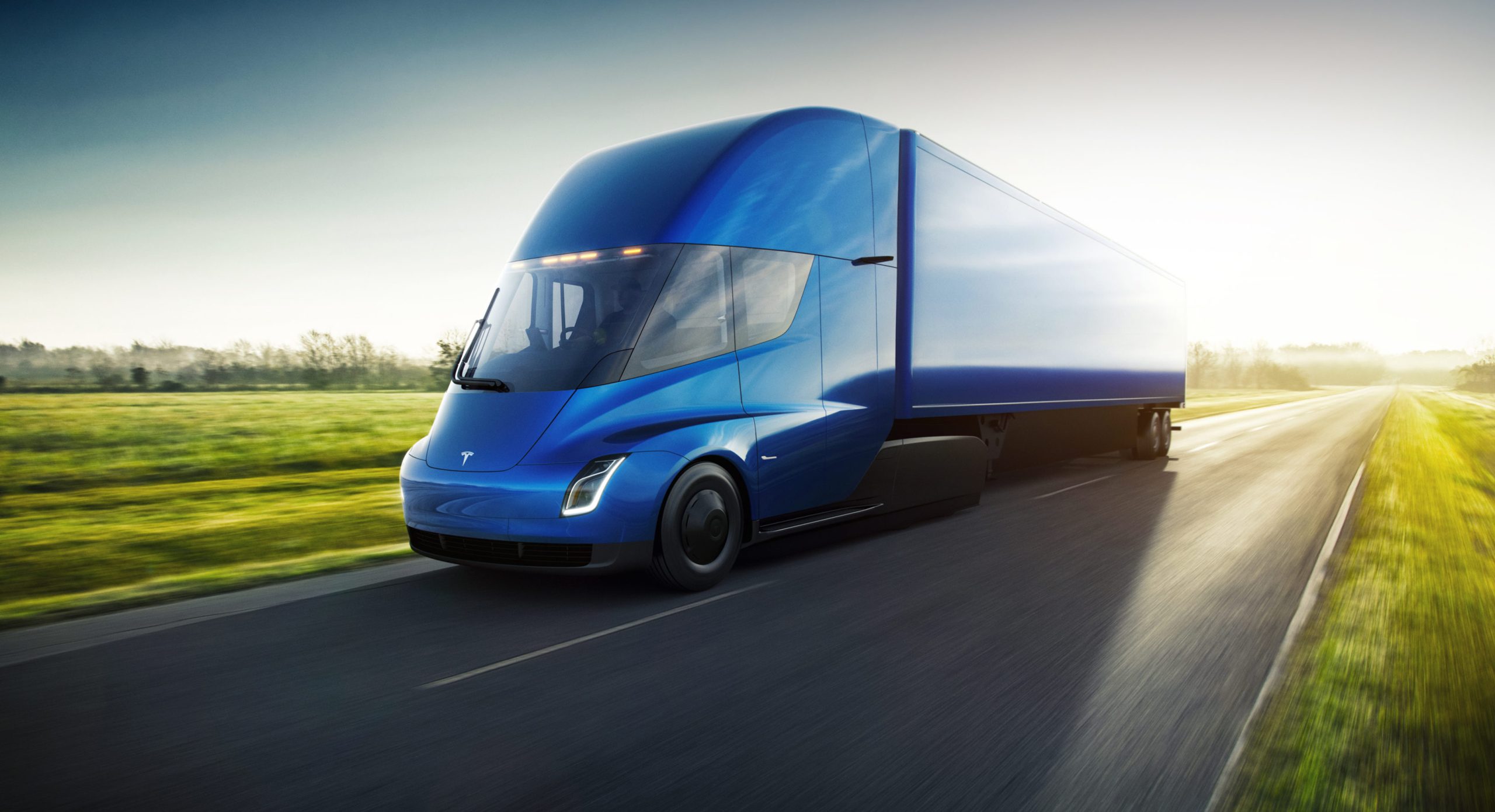
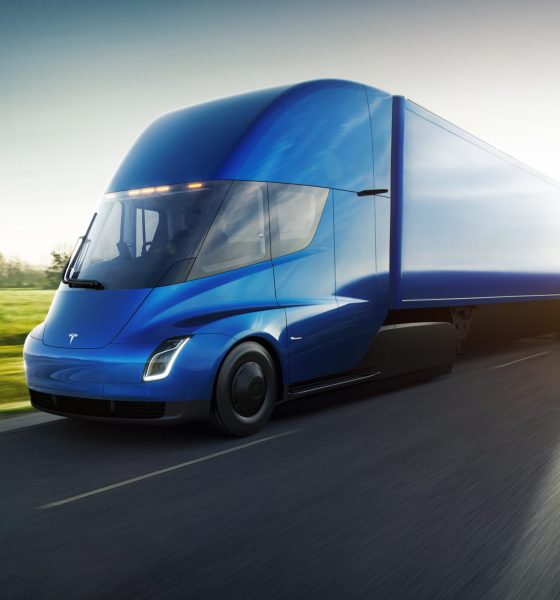
Energy
Tesla scores first Semi truck order in the Middle East, 50 units for Bee’ah
The Tesla Semi is continually proving to be a popular choice for long-haul operators looking to establish a sustainable supply chain through the use of a zero-emissions fleet. Just recently, Bee’ah, a UAE-based environmental and waste management firm, revealed that it had ordered a fleet of 50 Tesla Semi trucks immediately after the launch of the long-hauler back in November 2017. The announcement was released after Bee’ah reported that it would be participating in the upcoming World Future Energy Summit, which is set to be held in Abu Dhabi this coming January 15-18, 2018.
The Middle Eastern firm stated that its order for Tesla’s largest vehicle to date is yet another way to underline and highlight the company’s stance on clean, renewable energy. Bee’ah, after all, has already been actively involved in green initiatives. Just like Norway’s Posten Norge and ASKO, Bee’ah has been embracing renewable transport for years. The Middle Eastern firm is going the extra mile, however, utilizing other electric vehicles, machines that run on compressed natural gas and biodiesel, as well as solar-powered boats that are capable of cleaning lakes and other bodies of water for its operations.
While Bee’ah’s order of 50 Tesla Semis is quite impressive, it is pertinent to note that the UAE-based firm has already been an open supporter of Tesla’s clean energy solutions in the past. Just recently, Tesla and the Middle Eastern firm signed a deal for the installation of the Calfornia-based electric car maker and energy firm’s Powerpack system at Bee’ah’s headquarters. The environmental and waste management firm’s new HQ, which is currently under construction, boasts a state-of-the-art design that exclusively utilizes renewable energy.
Bee’ah chairman Salim Al Owais expressed his optimism about his firm’s future and how the Tesla Semi will play a role in achieving the company’s long-term goals. In a statement to Construction Business News, the chairman explained how Tesla’s technology ultimately lines up with the future that Bee’ah is aiming for.
“We are extremely pleased to turn towards Tesla for a solution that enhances our leadership of sustainable practices in the region. As a company that strives to be the best in our field, we only work with partners that we consider to be the best in theirs. Through this latest investment, we hope to demonstrate to others the value and importance of seeking out better, more viable ways of achieving our business aims, all for the greater good of our communities.”
“Bee’ah’s investment in Tesla’s Semi trucks and its Powerpack battery technology is a further example of our quest to take a holistic approach to environmental management, stretching far beyond waste management. Earlier this year, we announced the launch of a new company, EvoTeq, and signed two new business agreements as part of an investment in technology aimed at improving the lives of people living in the UAE.”
Once delivered, Bee’ah’s fleet of Tesla Semis will play a key role in the operations of the Middle Eastern firm. A significant number of the electric trucks will be utilized for waste collection and transportation. Others, on the other hand, will be used to transport materials for recovery.

Energy
Tesla Powerwall distribution expands in Australia
Inventory is expected to arrive in late February and official sales are expected to start mid-March 2026.
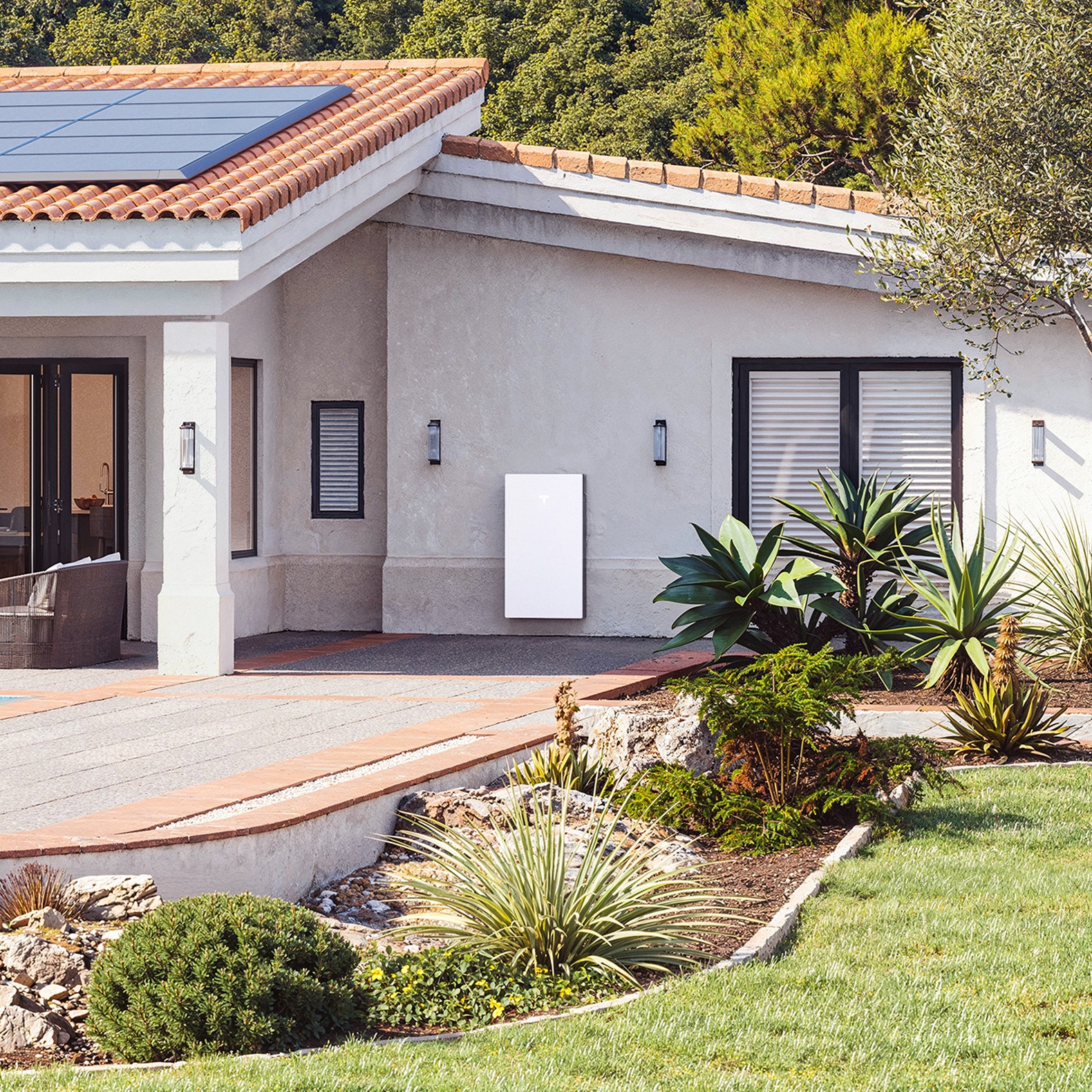
Supply Partners Group has secured a distribution agreement for the Tesla Powerwall in Australia, with inventory expected to arrive in late February and official sales beginning in mid-March 2026.
Under the new agreement, Supply Partners will distribute Tesla Powerwall units and related accessories across its national footprint, as noted in an ecogeneration report. The company said the addition strengthens its position as a distributor focused on premium, established brands.
“We are proud to officially welcome Tesla Powerwall into the Supply Partners portfolio,” Lliam Ricketts, Co-Founder and Director of Innovation at Supply Partners Group, stated.
“Tesla sets a high bar, and we’ve worked hard to earn the opportunity to represent a brand that customers actively ask for. This partnership reflects the strength of our logistics, technical services and customer experience, and it’s a win for installers who want premium options they can trust.”
Supply Partners noted that initial Tesla Powerwall stock will be warehoused locally before full commercial rollout in March. The distributor stated that the timing aligns with renewed growth momentum for the Powerwall, supported by competitive installer pricing, consumer rebates, and continued product and software updates.
“Powerwall is already a category-defining product, and what’s ahead makes it even more compelling,” Ricketts stated. “As pricing sharpens and capability expands, we see a clear runway for installers to confidently spec Powerwall for premium residential installs, backed by Supply Partners’ national distribution footprint and service model.”
Supply Partners noted that a joint go-to-market launch is planned, including Tesla-led training for its sales and technical teams to support installers during the home battery system’s domestic rollout.
Energy
Tesla Megapack Megafactory in Texas advances with major property sale
Stream Realty Partners announced the sale of Buildings 9 and 10 at the Empire West industrial park, which total 1,655,523 square feet.
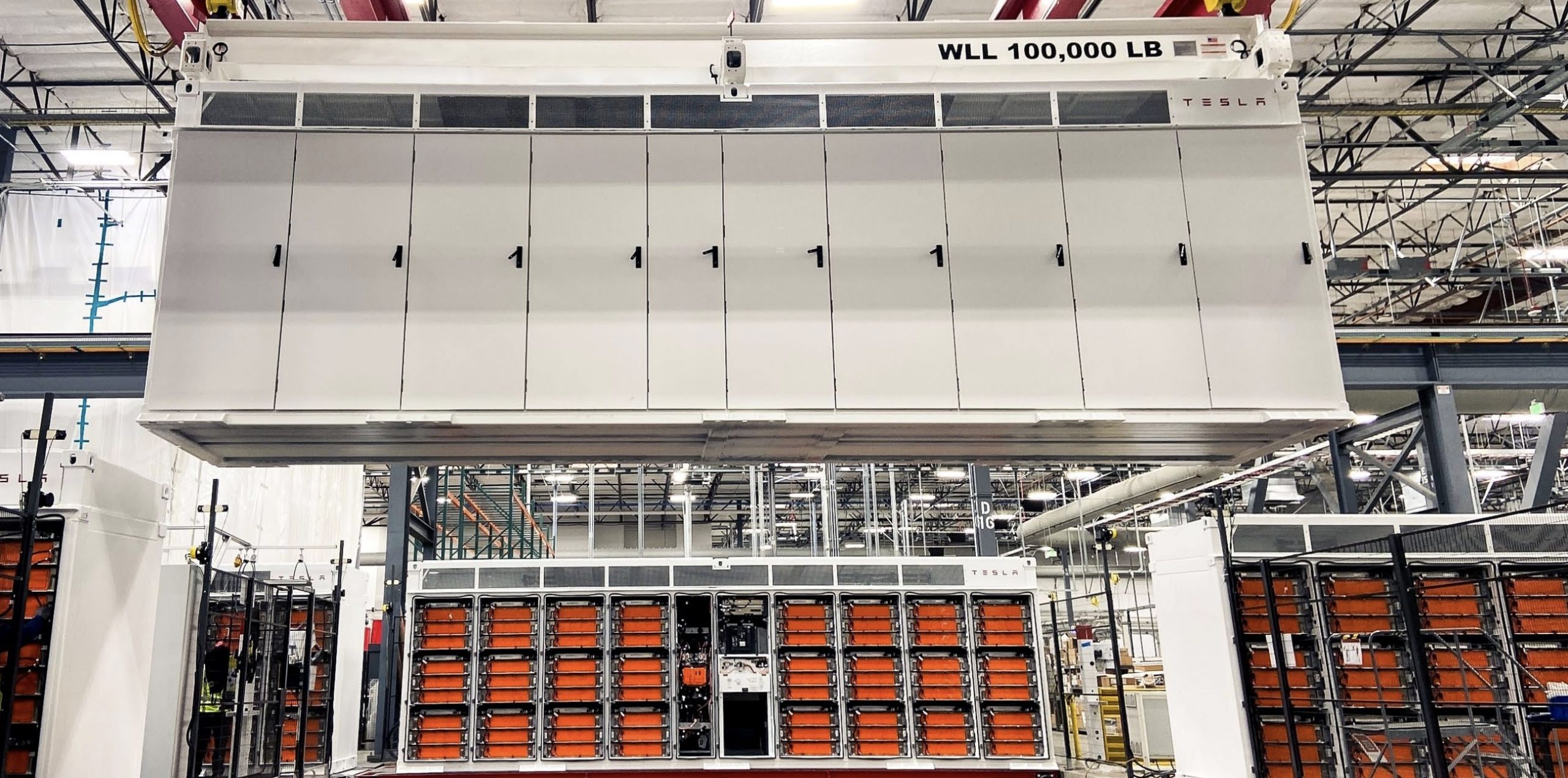
Tesla’s planned Megapack factory in Brookshire, Texas has taken a significant step forward, as two massive industrial buildings fully leased to the company were sold to an institutional investor.
In a press release, Stream Realty Partners announced the sale of Buildings 9 and 10 at the Empire West industrial park, which total 1,655,523 square feet. The properties are 100% leased to Tesla under a long-term agreement and were acquired by BGO on behalf of an institutional investor.
The two facilities, located at 100 Empire Boulevard in Brookshire, Texas, will serve as Tesla’s new Megafactory dedicated to manufacturing Megapack battery systems.
According to local filings previously reported, Tesla plans to invest nearly $200 million into the site. The investment includes approximately $44 million in facility upgrades such as electrical, utility, and HVAC improvements, along with roughly $150 million in manufacturing equipment.
Building 9, spanning roughly 1 million square feet, will function as the primary manufacturing floor where Megapacks are assembled. Building 10, covering approximately 600,000 square feet, will be dedicated to warehousing and logistics operations, supporting storage and distribution of completed battery systems.
Waller County Commissioners have approved a 10-year tax abatement agreement with Tesla, offering up to a 60% property-tax reduction if the company meets hiring and investment targets. Tesla has committed to employing at least 375 people by the end of 2026, increasing to 1,500 by the end of 2028, as noted in an Austin County News Online report.
The Brookshire Megafactory will complement Tesla’s Lathrop Megafactory in California and expand U.S. production capacity for the utility-scale energy storage unit. Megapacks are designed to support grid stabilization and renewable-energy integration, a segment that has become one of Tesla’s fastest-growing businesses.
Energy
Tesla meets Giga New York’s Buffalo job target amid political pressures
Giga New York reported more than 3,460 statewide jobs at the end of 2025, meeting the benchmark tied to its dollar-a-year lease.
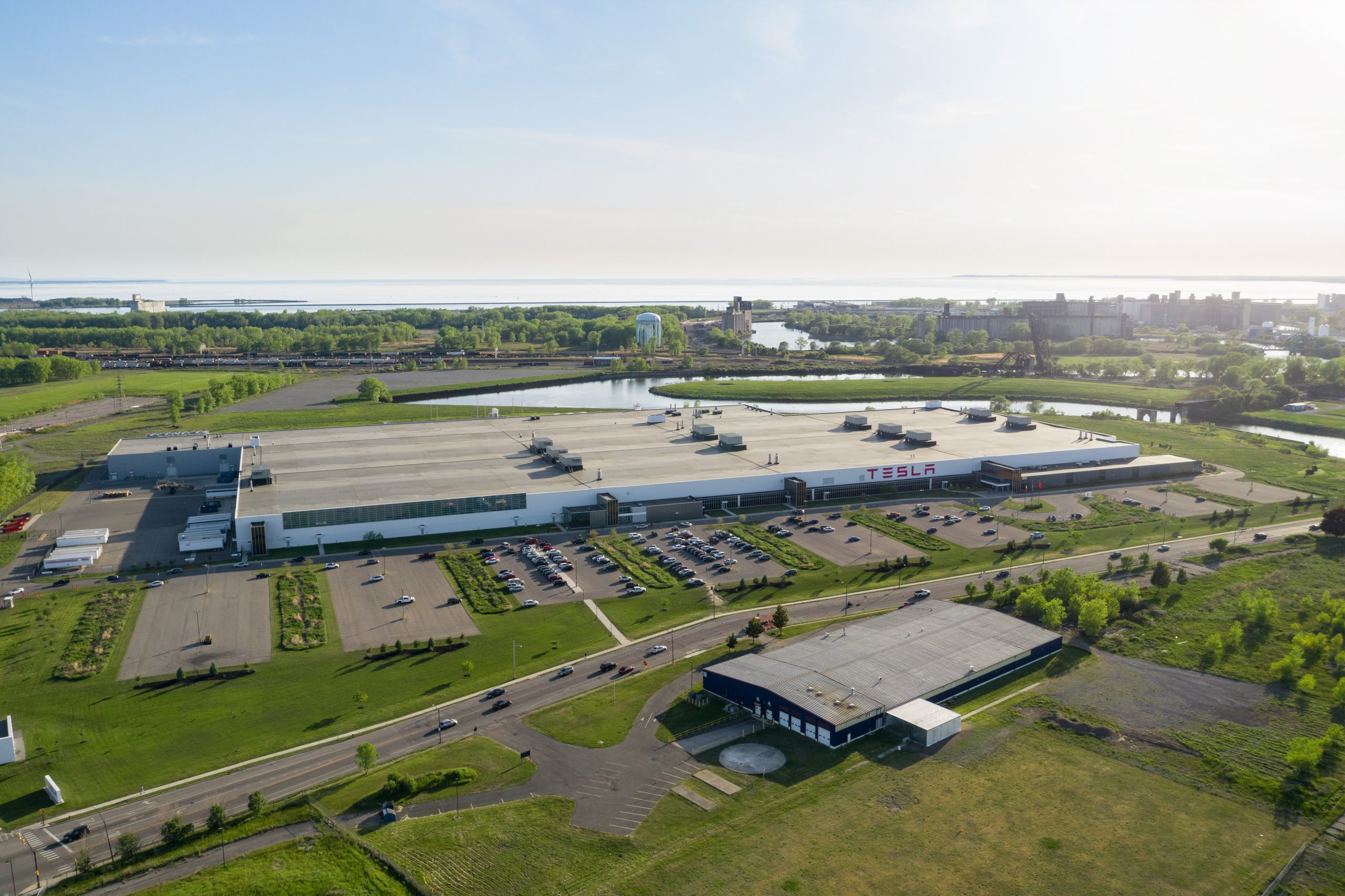
Tesla has surpassed its job commitments at Giga New York in Buffalo, easing pressure from lawmakers who threatened the company with fines, subsidy clawbacks, and dealership license revocations last year.
The company reported more than 3,460 statewide jobs at the end of 2025, meeting the benchmark tied to its dollar-a-year lease at the state-built facility.
As per an employment report reviewed by local media, Tesla employed 2,399 full-time workers at Gigafactory New York and 1,060 additional employees across the state at the end of 2025. Part-time roles pushed the total headcount of Tesla’s New York staff above the 3,460-job target.
The gains stemmed in part from a new Long Island service center, a Buffalo warehouse, and additional showrooms in White Plains and Staten Island. Tesla also said it has invested $350 million in supercomputing infrastructure at the site and has begun manufacturing solar panels.
Empire State Development CEO Hope Knight said the agency was “very happy” with Giga New York’s progress, as noted in a WXXI report. The current lease runs through 2029, and negotiations over updated terms have included potential adjustments to job requirements and future rent payments.
Some lawmakers remain skeptical, however. Assemblymember Pat Burke questioned whether the reported job figures have been fully verified. State Sen. Patricia Fahy has also continued to sponsor legislation that would revoke Tesla’s company-owned dealership licenses in New York. John Kaehny of Reinvent Albany has argued that the project has not delivered the manufacturing impact originally promised as well.
Knight, for her part, maintained that Empire State Development has been making the best of a difficult situation.
“(Empire State Development) has tried to make the best of a very difficult situation. There hasn’t been another use that has come forward that would replace this one, and so to the extent that we’re in this place, the fact that 2,000 families at (Giga New York) are being supported through the activity of this employer. It’s the best that we can have happen,” the CEO noted.








